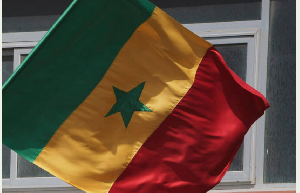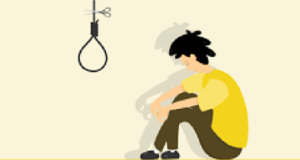(A GNA FEATURE BY WILLIAM EZAH)
Accra, Dec. 23, GNA - Football is described and hailed as the beautiful game and the passion of most people across the globe.
In Ghana, the game of soccer is the most populous game and is simply termed "the passion of the nation".
A Retrospective view of the game since its introduction reveals that, it has been played purely on recreational basis with little or no competition and even where there is one it is played in the spirit of friendliness.
Unfortunately, recent developments in football has turned the beautiful game into unhealthy rivalry between nations, clubs and organizations leading to serious acts of violence which could even threaten the stability of peace in countries and the world as a whole.
The recent nasty scenes that escalated after the game between Accra Hearts of Oak and Kumasi Asante Kotoko was a clear case of the extent to which violence has taken a dominant stage in the beautiful game.
One need not to remind soccer fans of the death of 121 soccer fans, who lost their lives in 2001, now popularly known as the 'May 9 Disaster' after a football match between the two sides, considered to be the bitterest soccer rivals in the country and the effect it is having on the nation till date.
Similarly, nine lives were also lost during the game between the same two sides in the first round of the 2008/9 premiership at the Baba Yara Stadium in Kumasi and this could be attributed to unhealthy rivalry between the two sides which though existed earlier has now turned ugly and seems to have become a normal phenomenon.
On the international scene, one can easily cite the violence that characterized the World Cup Qualifier between Egypt and Algeria as anothe= r example of the ugly side of football.
In the ensuing violence, innocent lives were lost with attacks on players from both sides.
So dirty and ugly was it that, the Federation of International Football Association (FIFA) decided to investigate the matter and apply the needed sanctions, whilst the issue also took a diplomatic dimension.
Prior to the 2006 World Cup qualifier between Cameroon and Cote D'Ivoire, aggrieved fans attacked the family of Piere Wome at Yaound=E9 and burnt down his house, whilst skipper Rigobert Song could not escape the wrath of the fans who chased him into a bank in protest against the country's inability to qualify for the Mundial.
These acts of violence have over the years become permanent features on the beautiful game and had cast a slur on the image of football.
It is estimated that the low level of sponsorship and funds from corporate bodies for the development of the game has been attributed to violence and its related issues since corporate bodies are very conscious= of their image and are reluctant to associate themselves with the ugly side of the game.
Many are of the view that Ghana's Premier League could have earned m= ore than three million dollars for the sponsorship of the League if concrete steps are taken to curb the rate of violence in the local League which sp= ans from premiership to the juvenile level.
In dealing with the situation, international and local bodies such a= s FIFA, the Confederation of Africa Football (CAF) and the Ghana Football Association (GFA) have over the years used heavy sanctions and fines on clubs and local supporters Associations to serve as deterrent for others. But this has not been effective since the real culprits - unscrupulous fans have on several occasions been left to go free of the laws.
The misbehaviour of the fans therefore calls for the effective use o= f Close Circuit Television (CCTV) to monitor fans and fish them out in time= s of violence and impose sanctions on individuals who engage in such acts. Accra Hearts of Oak early this season served a two match home ban and= a GHC 3,000 fine for acts of crowd violence on match officials and paramedi= cs, whilst the real culprits that carried out the act were left free. Interestingly the CCTV at the Ohene Djan Stadium, Accra has not been utilized to the maximum level since its proper usage could have spared th= e club from the punishments meted because of acts by the fans.
FIFA has over the past years been promoting the need for Fair Play before and after each game as part of efforts to reduce crowd violence. The campaign, however, should not be limited to the presentation of banners before and after matches but extended to the grass root level such as schools through the local football federations to promote fair play. Without enforcing stringent measures, the governing bodies will find it difficult to control crowd violence in the beautiful game, which has inde= ed become the ugly side of the game and is gradually discouraging football lovers from trooping to the stadium.
Sports Features of Wednesday, 23 December 2009
Source: GNA












